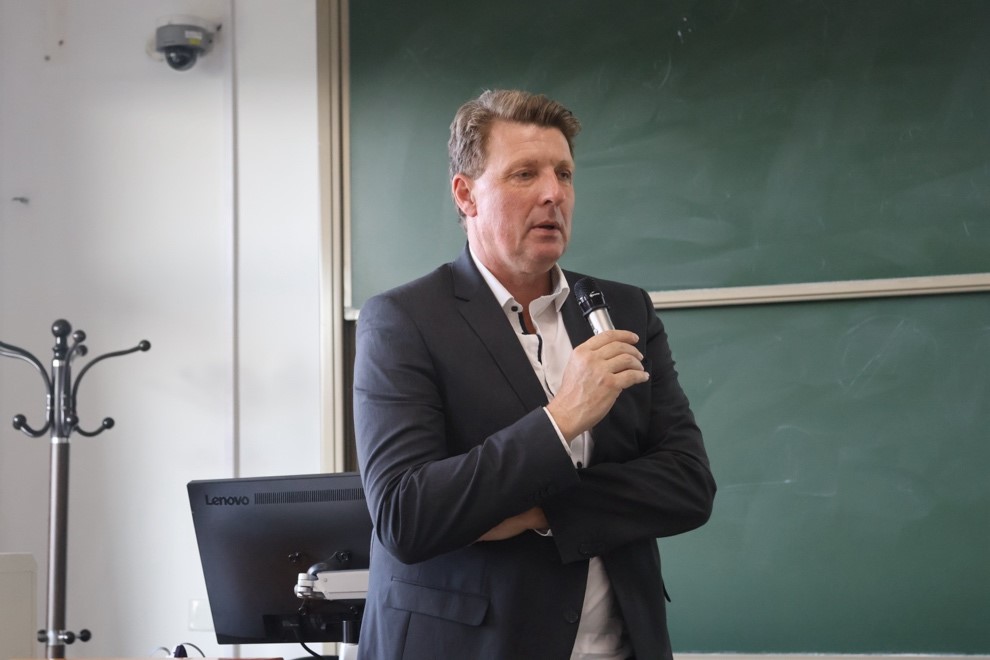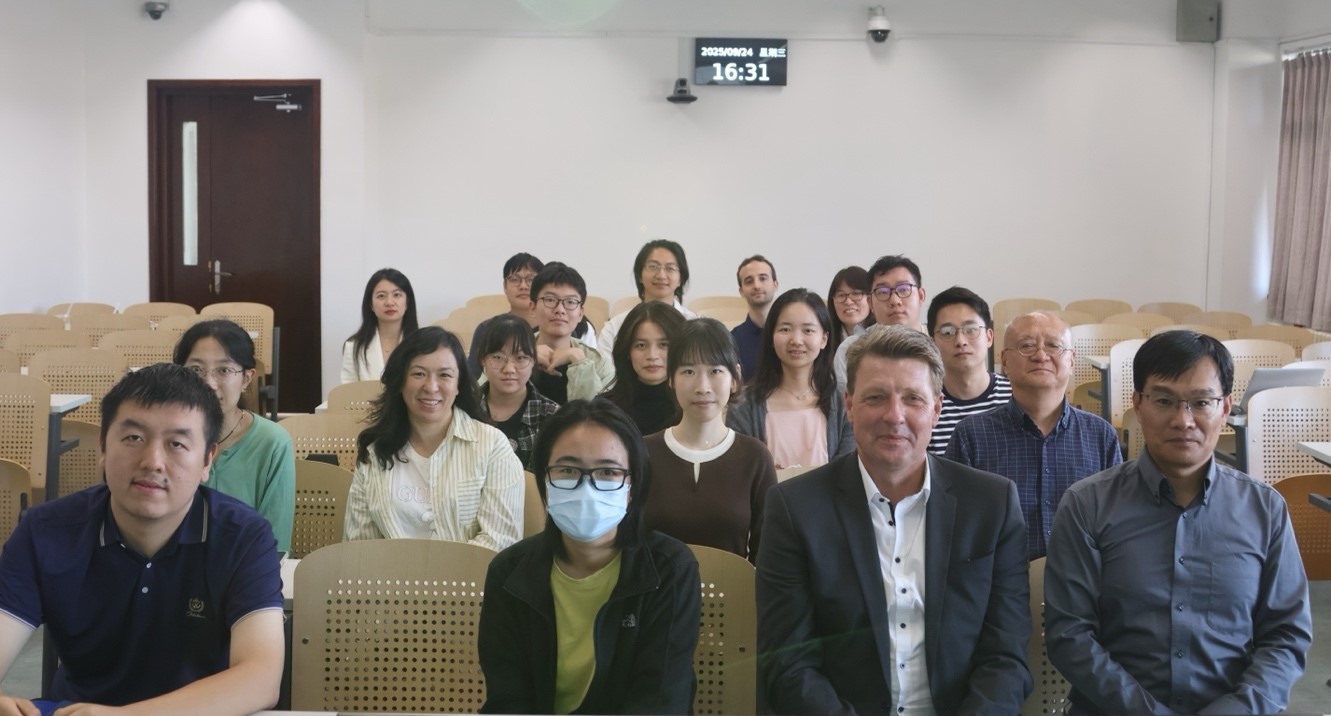
The 63rd session of the “Adventus Amicorum” seminar series, organized by the Institute of Area Studies at Peking University (PKUIAS), took place on September 24, 2025. The seminar’s theme was “Martin Luther University Halle-Wittenberg: Five Centuries of Research and Innovation — Exchange Programs for Students and Graduates.” Prof. Ralf Wehrspohn, Managing Director of the Institute for Technologies and Economics of Lithium, Honorary Professor at the University of International Business and Economics, and Distinguished Professor at Shandong University of Finance and Economics, delivered the keynote lecture. Participants in the discussion included Prof. Zan Tao, a professor in the Department of History and a deputy director of PKUIAS; Prof. Feng Xiaohu, a professor and doctoral supervisor at Martin Luther University Halle-Wittenberg and Humboldt University of Berlin; and more than twenty faculty members and students from across the university. Chen Hongyu, a doctoral candidate at PKUIAS, moderated the seminar.
Prof. Wehrspohn began by introducing the Alexander von Humboldt Foundation, one of Germany’s most important platforms for supporting international academic exchange. Founded in 1953 and named after the renowned scientist Alexander von Humboldt, the Foundation adheres to the principle of “supporting people rather than projects.” Each year, it awards nearly one thousand fellowships and research prizes to scholars from more than 140 countries, fostering a global research network. To date, the Foundation counts over 30,000 “Humboldtians” worldwide, including more than sixty Nobel laureates.
Building on this overview, Prof. Wehrspohn turned to Martin Luther University Halle-Wittenberg (MLU). He traced the institution’s historical development from the merger of the University of Wittenberg (founded in 1502) and the University of Halle (founded in 1694), highlighting a scholarly tradition spanning more than five centuries and a distinguished roster of alumni—among them the Reformation leader Martin Luther, the educator Philipp Melanchthon, the mathematician Georg Cantor, and the Nobel Chemistry laureate Karl Ziegler. Today, MLU comprises nine faculties and enrolls over 20,000 students. It maintains internationally recognized strengths in material science, the life sciences, Enlightenment and religious studies, and social and cultural research. Prof. Wehrspohn emphasized the university’s strong commitment to internationalization, noting that MLU collaborates with more than 300 universities and research institutes worldwide. The university offers multiple English-taught degree programs and provides comprehensive support services for international students and scholars, including language training, accommodation assistance, health insurance, visa guidance, and scholarship advising.

In the concluding discussion, participants posed a range of questions to Prof. Wehrspohn, which he addressed in detail. He encouraged students to engage proactively with the international academic community and to draw on the interdisciplinary perspectives of area studies to better understand and utilize global exchange platforms. The seminar concluded in a warm and intellectually vibrant atmosphere.


